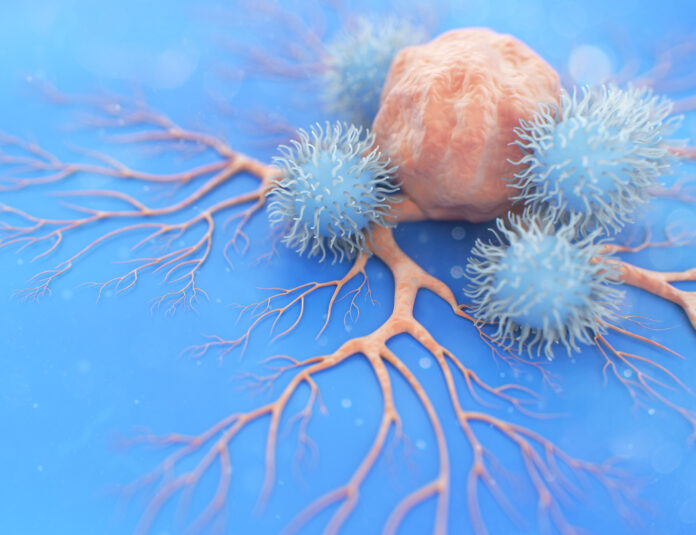Carla Mitchell’s anemia set doctors off on a search for explanations. But the then 36 year old never suspected bowel cancer to be the culprit.
Prior to her diagnosis, Mitchell was struggling with a myriad of odd symptoms.
Be Pushy, Be Your Own Advocate… Don’t Settle
One test they made sure to do was a colonoscopy, but Mitchell had to wait a couple weeks due to her severe anemia.
“Luckily, I was one of two colonoscopies that didn’t get cancelled that day due to covid,” she wrote. “It was after this that I was diagnosed.”
Mitchel was given a “pre-staging” of stage 1 bowel cancer in January 2021. But after treatment began with surgery, doctors discovered that her cancer was really stage 3.
“I had surgery, and then was given adjuvant chemotherapy,” she wrote. “This was four cycles of CAPOX [Capecitabine and Oxaliplatin].
“My treatment stopped after three rounds as the chemotherapy affected my bloods and platelets too much and I was told that it could cause long term damage if we continued. Nausea and spasms in my throat and hands were the main side effects that I could physically feel.”
RELATED: Chemotherapy for Stage Three Colon Cancer
Further testing after chemotherapy also revealed that Mitchell had Lynch syndrome – a genetic mutation that leads to an increased risk of colorectal cancer as well as other cancers like uterine cancer, endometrial cancer and ovarian cancer, among others.
“Since my diagnosis, life has changed in many ways but, for me personally, it has been more so in terms of the mental effects rather than the physical,” she explained. “I’ve felt emotions that I didn’t know I was capable of feeling, and every day brings different thoughts, feelings and anxieties.
“I definitely have to learn to rest now when my body and mind need it!”
Thankfully, Mitchell is doing well today. And she’s happy to share her story in the hopes that others can learn from her experience with the disease.
Understanding Bowel Cancer
Bowel cancer is a general term for cancer that begins in the large bowel, but generally we use the term colorectal cancer – or colon cancer or rectal cancer depending on the location of the cancer – in the United States.
Bowel cancer, like all cancers, presents its own unique challenges for patients on the road to recovery. But Dr. Heather Yeo wants to remind people how far the treatment of this disease has come.
“One of the most exciting things about my job is that we’ve made a lot of progress on treatment options,” Dr. Yeo says in a previous interview with SurvivorNet. “However, patients are still — while they’re living longer, they are still living with colon cancer, and so I think it’s really important that we talk about how some of the things in your life affect you.”
Symptoms of Bowel Cancer
Colorectal (bowel) cancer might not immediately cause symptoms, but these are possible symptoms to look out for:
- A change in bowel habits such as diarrhea, constipation or narrowing of the stool that lasts for more than a few days
- A feeling that you need to have a bowel movement that’s not relieved by having one
- Rectal bleeding with bright red blood
- Blood in the stool which might make the stool look dark brown or black
- Cramping or abdominal (belly) pain
- Weakness and fatigue
- Unintended weight loss
It is important to note, however, that displaying some of these symptoms does not mean you have colorectal cancer. You could also have colorectal cancer and not display any of these symptoms. Regardless, it is important to bring up any symptoms to your doctor should they arise.
Screening for Bowel Cancer
Dr. Yeo also emphasizes the importance of colorectal cancer screenings such as colonoscopies because most colorectal cancers can be prevented early with screening.
“You Shouldn’t Die From Embarrassment”: Colon Cancer Can Be Prevented
“In the United States, on a national level, colorectal cancer has been decreasing for the last 20 years,” Dr. Yeo says. “And much of that is thought to be directly due to screening for colon cancer.”
Even still, colorectal cancer cases are rising among younger people. And in the United States alone, rates have increased every year from 2011 to 2016 by 2 percent among people younger than 50. Because of this increase, the United States Preventive Services Task Force has recently updated its colorectal cancer screening recommendations to begin at age 45 instead of 50.
“We know that colon cancers can be prevented when polyps are found early,” Dr. Yeo said. “Lowering the screening age helps somewhat with this. But access to care is a real problem.”
And increasing access is crucial to making sure that we don’t see racial disparities within the world of colorectal cancer. Whites and Asians are significantly more likely to be up to date with their colonoscopies than African Americans, Latinos and Native Americans.
RELATED: Why Do So Few Black Men Get Colon Cancer Screenings?
Research suggests that tailoring colorectal cancer screenings to each person’s individual risk may be beneficial. If you are not yet 45 but have concerns about your risk, talk to your doctor. Ask about your individual risk based on your lifestyle and family history and find out when screenings would be right for you.
Learn more about SurvivorNet’s rigorous medical review process.









![Best Weight Loss Supplements [2022-23] New Reports!](https://technologytangle.com/wp-content/uploads/2022/12/p1-1170962-1670840878.png)




